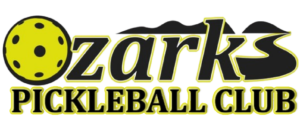Ozarks Pickleball Club Sportsmanship Guidelines for Tournaments
Pickleball was created to be a fun, competitive and highly social sport. Since its inception, it has embodied an ethic of good sportsmanship that includes respect, fair play and graciousness in winning and losing. The purpose of this guide is to encourage behaviors that reflect these foundational values. The Official Rules of Pickleball take precedence over this guide in any and all situations.
Note: These guidelines are summarized from the USA Pickleball Sportsmanship Guide and do not supersede the full Guide or the Rulebook.
Important: The Tournament Director and Tournament Staff reserve the right to give players sportsmanship warnings for any deviation from these guidelines. Repeated warnings or gross misconduct may result in that player's ejection from the tournament and resulting in forfeit of games and disqualification from future events.
--You can access the USAP Sportsmanship Guide here, or visit the USA Pickleball website for more details.
1. Treat all players, officials, volunteers, staff and spectators with courtesy and respect.
- Never use foul language or obscene gestures.
- Never denigrate another person.
- At the end of each game, meet the other players at the net to acknowledge them in a positive manner. In officiated matches, thank the referee.
2. Know the Official Rules of Pickleball, apply them fairly and cooperate in any situation that is not expressly covered by the rules.
3. Practice good sportsmanship when making line calls.
- Respect your opponents' right to make all calls on their end of the court.
- Call your own shot “out” if you see that it is out.
- If you question an opponents’ call, do so respectfully, do not argue. Accept their decision.
- If you defer a line call to your opponents’, accept their call graciously.
- Do not call a ball “out” unless you see it clearly and are certain it is out.
- Promptly correct any wrong call your partner may make.
- Resolve any uncertainty in the favor of your opponents.
4. Call a fault on yourself or your partner as soon as the fault occurs, regardless of whether your opponents are aware of the fault
5. Claim a replay only if a hindrance (ie. stray ball) affects your team’s ability to play the ball.
6. Make safety a priority while using common sense..
- If a ball strays onto your court, make eye contact with the correct person and roll or toss it back to them without disrupting play on other courts.
- If your ball enters another court, immediately warn any players whose safety may be in jeopardy by loudly calling “ball” or some other warning. If the ball is rolling behind their court and does not present a danger to players, do not interrupt play but wait until play stops to retrieve it or ask for its return.
- Never throw your paddle or strike the ball in anger or frustration.
